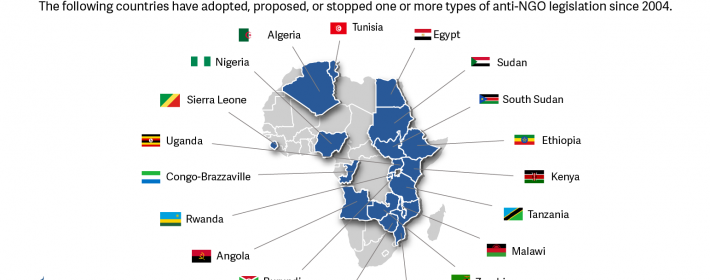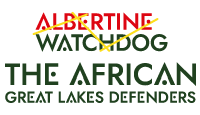Impacts of restrictive Laws on Human rights defenders protection in Africa

Throughout Africa, civic engagement is getting riskier for Human rights defenders, staff, and volunteers working for human rights organisations and social movements. Human Rights organisations face targeted threats and restrictions on their abilities to conduct their activism work. They are subjected to smear campaigns, defamation, physical harassment, false charges and sentence under various laws, their peaceful actions are criminalised, and their members are simply unable to carry out their work, either because they are detained, tried, or threatened or subjected to various restrictions on their ability to express themselves, to meet, or to operate. Human Rights organisations are targeted with de-registrations or bank accounts frozen. Bans on foreign donations are becoming common practices in the region. Several countries have introduced complicated and bureaucratic processes. This affects the work of human rights organisations in the region and limits their independence.
Dozens of African countries are passing or adapting existing laws to make civic engagement almost difficult.
According to Freedom House, human rights are violated in over 25 countries across Africa, and only 5 countries in Africa where civic space is free. According to Global Witness, at least 212 Environmental Human Rights Defenders were killed in 2019. Other key violations contributing to closing civic space include detentions and arrests, legal action, intimidation, threats, smear campaigns, and verbal abuse, physical attacks, excessive use of force, censorship, and the adoption of restrictive legislation.
For the last 16 years, over 11 countries in Africa have adopted counter-terrorism laws with several other new laws and administrative measures in places to restrict activities of human rights organisations in the region. According to Freedom House, These laws and policies seek to impose state control over civil society, particularly NGOs that work on human rights and governance issues. It’s also a part of a broader strategy adopted by the African government to narrow democratic space and prevent challenges to the rule of strongmen and governing parties. For example in Uganda,long-ruling president Dictators Yoweri Museveni’s administration sought to constrain dissent by implementing new surveillance systems and instituting a regressive tax on social media use.
In 2019 Uganda Human rights and freedom status declined from Partly Free to Not Free due to attempts by long-ruling president Dictator Yoweri Museveni’s government to restrict free expression, including through surveillance of electronic communications and a regressive tax on social media use. As several of the aging African authoritarian leaders continued to cling to power, they are also struggling to deliver basic freedoms and protect human rights of the African citizens.
Public order laws like Uganda’s Public Order Management Act of 2013 and, under which the government can legitimately regulate public gatherings and protests, is an avenue for the government when dealing with the opposition and human rights defenders. Governments do not tolerate even peaceful marches, and violent dispersals of protesters by security forces are common. In Sudan the Government have adopted laws to have NGO leaders arrested, detained without trial, or prosecuted for offenses that include terrorism, undermining state security and the constitutional order, and espionage. Although the some of these laws were adopted to restrict NGOs of financial resources, deny them registration, and ban them outright, the government usually uses these other laws to disrupt human rights defenders activities by keeping human rights defenders bogged down in their own security related court cases.
These bad laws have significant consequences for human rights defenders and organisations and abridge the freedoms of association and assembly. In Kenya, Nigeria, Sudan, Ethiopia, Tunisia, and Egypt, authorities have used counterterrorism and related money laundering concerns to rationalize anti-NGO measures. In Kenya and Nigeria, authorities have accused sections of civil society of “supporting terrorists,” prompting a defamation lawsuit by one NGO in Kenya. In Sudan, Ethiopia, and Egypt, governments have followed through on such claims by actively prosecuting NGO activists, journalists, and opposition figures on charges including “joining a terrorist organization,” “belonging to a terrorist organization,” “joining an illegal group,” and the more nebulous “undermining national security.” Thousands of people have been tried and imprisoned under various security laws in these countries, and many organizations have been shuttered.
In order to address those impacts of the bad laws on human rights defender’s protection, there is a need for collaboration at local, national, regional, and international levels among the Human rights defenders, donors, and potential supporters. Human rights organisations need to work together at all times with or without donors support. Awareness-raising and capacity building need to be implemented for human rights defenders and organisations to equip their skills and capacity in legal interpretations, digital and physical security and to build their knowledge in international, local and regional best human rights practices relevant to comply with the several existing laws and those being adopted.
End notes
The Spread of Anti-NGO Measures in Africa
Freedoms Under Threat: The Spread of Anti-NGO Measures in Africa
Photo credit https://freedomhouse.org/report/special-report/2019/spread-anti-ngo-measures-africa-freedoms-under-threat
